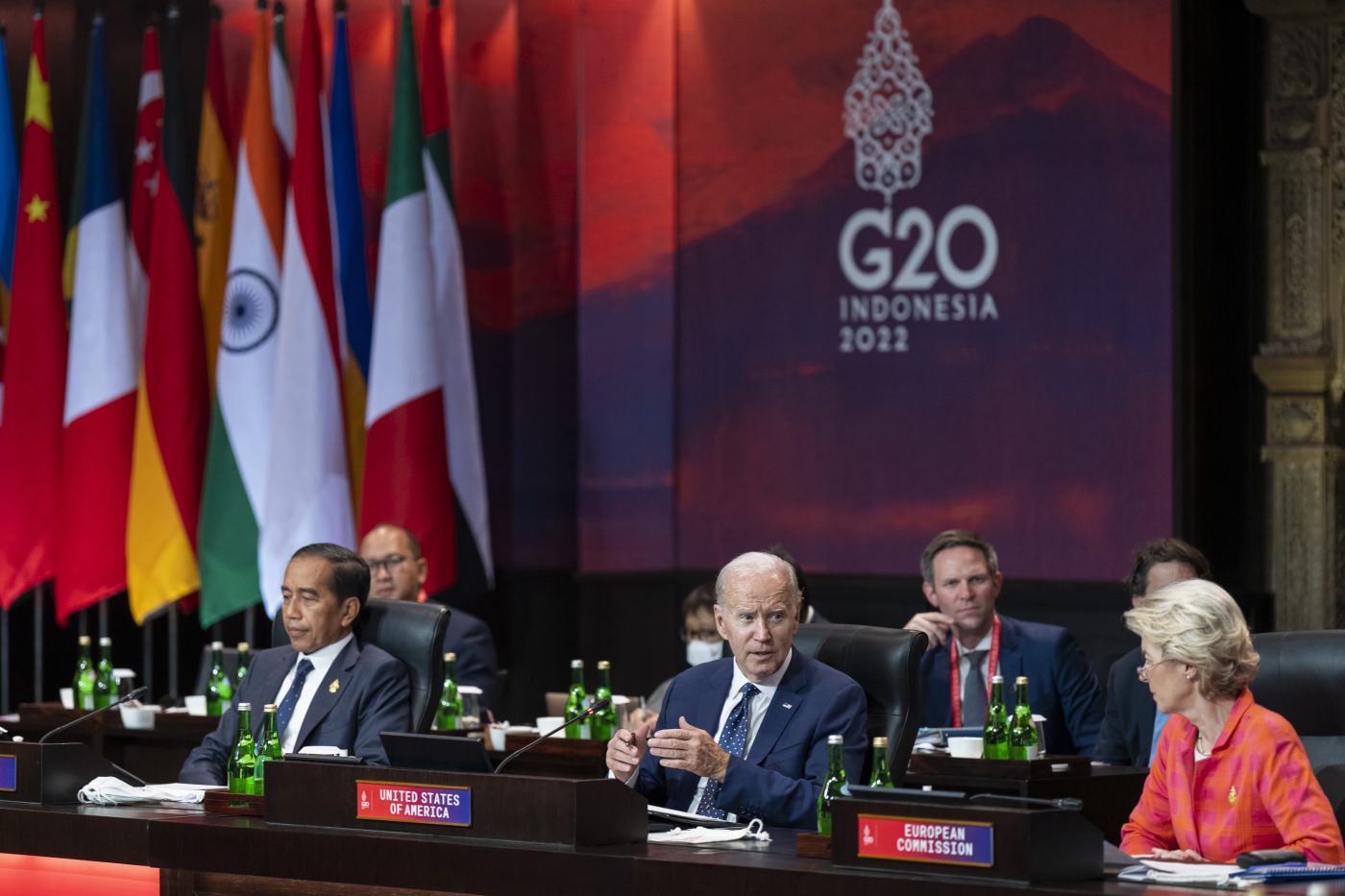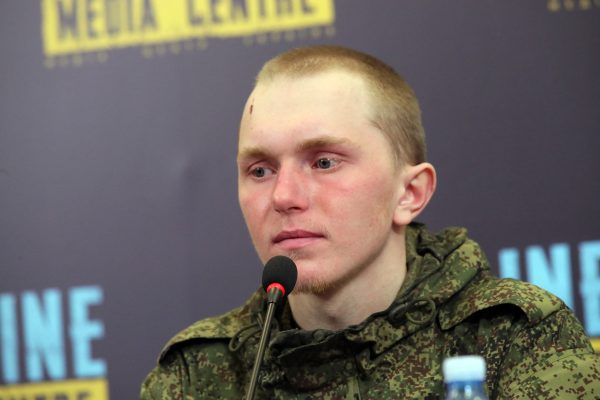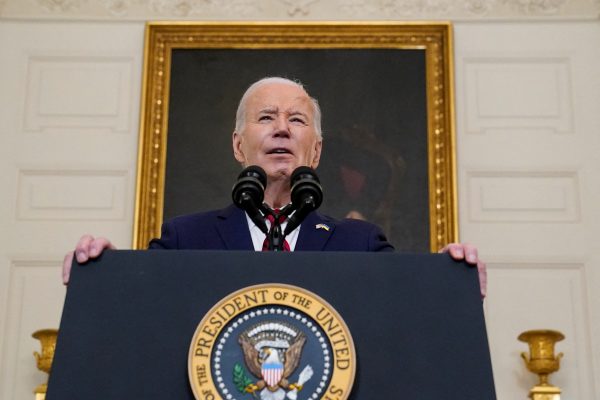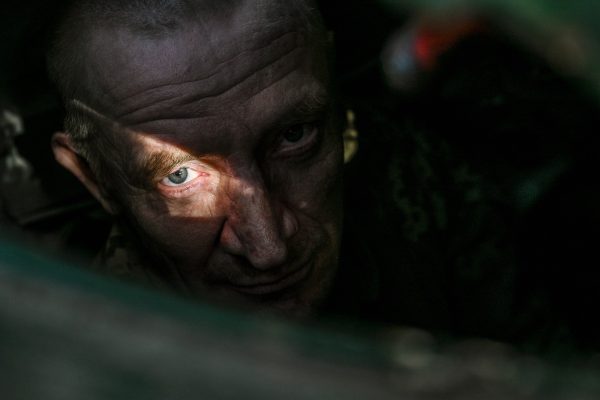No one can surely claim that Western countries, especially the United States and NATO’s European members, have not taken the Russian war against Ukraine seriously.
Military aid to Ukraine has been decisive in the latest victories of the Ukrainian army (most recently with the recapture of the key city of Kherson), in particular, American HIMARS guided rockets and French Caesar howitzers, albeit of lesser range. All the armaments, both American and European, have proved indispensable at every stage of the conflict and, although still insufficient, in the protection of Ukrainian civilians from attacks on their homes and infrastructure.
The intelligence provided by the US has also been key. Some units, however, still lack essential weapons and ammunition, and, above all, certain types of weapons, notably longer-range ATACMS ballistic missiles, which would be decisive in the reconquest of Ukraine and, more generally, the rapid advance of Ukrainian troops in the Donbas. The same is true of advanced combat aircraft.
In sum, the impression prevails that, breaking with 22 years of passivity in the face of Russian aggression, the allies have demonstrated a resolution to ensure Ukraine is not vanquished. Yet they have not been as resolute in their desire to defeat Russia completely.
Recently, though clear in his support for Kyiv, French President Emmanuel Macron spoke of the fact that one day it would be necessary to “come back to the table” with Russia, though without openly using the word negotiations and without specifying whether that meant a Russia led by Putin. The US Army Chairman of the Joint Chiefs of Staff Mark Milley expressed doubts about whether Ukraine would be able to regain all its lost territory and evoked the need for future negotiations.
There have also been insistent rumblings in the US that President Zelenskyy might be pressured to accept the principle of talks with the Kremlin and not to be “maximalist.” Some people are also starting again to make the distinction, absurd in legal as well as strategic terms, between the territories conquered by the Kremlin on February 24 of this year, and those occupied after 2014, notably Crimea. Thus, what I have called the dark clouds of peace are beginning to appear again — a peace that would not require the full and complete defeat of Putin’s regime. It is also known that certain countries, such as India and even the People’s Republic of China, which are in reality Kremlin supporters under the guise of neutrality, are trying to plead with democratic countries to be entrusted with mediation — as if mediators are what is needed.
Such a retreat would be catastrophic for the credibility and the security of the free world, but it is essential to understand beforehand what explains the West’s apparent diffidence.
This means accepting that our war aims go far beyond Ukraine, and that the pretense we are not at war with Russia should end. Of course, we are not legally at war with Russia, but this war is ours, and every murder of a Ukrainian is just as harmful to the democratic world as that of a European or American. We inhabit the same world.
Secondly, there must be medium- and long-term strategic objectives toward Russia that go beyond deterrence and Putin. We cannot pretend it simply requires an end to the war in Ukraine and giving security guarantees to Ukraine.
Of course, it is difficult to imagine that we could directly “pilot” a process of regime change in Moscow. But we need to define the means by which we can influence events there. And there are obligations that the democratic alliance cannot shirk, including war damage reparations for Ukraine (damage that was estimated at $326bn even before Russia’s all-out assault on civilian infrastructure.)
Justice must be delivered to Russia’s leaders and perpetrators for four categories of crimes: war crimes, crimes against humanity, crimes of genocide, and crimes of aggression. This is a political obligation in the first case, since gratuitous aggression cannot be considered to relieve the aggressor of its responsibilities once the war is over. As for the second dimension, the punishment of crimes for which there is no statute of limitations is a binding legal obligation and, legally, it cannot be negotiated, even in the unlikely event that the families of victims agreed to compromise.
None of this can be achieved without maintaining strong and constant pressure on the government in place in Moscow at the time, including by maintaining and, if necessary, strengthening sanctions. So we will have to continue to take an interest in Russia and set conditions for it to one day rejoin the community of nations. A comprehensive transition policy must therefore be crafted to include economic and social measures. We must avoid repeating the mistakes of 1991, when we left the old security apparatus in place, allowed high-intensity corruption to develop because of our own love of gain (think Western European bankers, lawyers, and real estate agents), and paid no attention to the bitterness that would be caused by great poverty among ordinary Russians and the dismantling of the social safety net, for which the West was held responsible. Thirdly, we cannot ignore Putin’s ideology.
This, as I have shown elsewhere, is pure destruction and a declaration of war on the values of freedom, law, and dignity. It employs murder and crime, which are more than just modes of action but represent the heart of the project. Western leaders have looked the other way for so long and perhaps still do in part. They imagine that they can think of Russian foreign policy as the manifestation of a state that is possibly “excessive” but ultimately “normal”; they look at Russia as an abstract rather than the regime; they believe they can still think in the categories of interests, rationality, and exchange. In short, they imagine that once Ukraine is saved and Russia is pushed back beyond its frontiers, the Kremlin will understand the perils of its actions and ultimately soften.
These three false assumptions prevent some Western leaders not only from clear thinking about the war’s outcome and the need for Russia to accept its defeat. They also imagine Russian policy as at best containment, a kind of status quo, rather than rollback. They simply have no clear goal in mind.
Here is what they must accept — the absolute defeat of the Russian regime is not only necessary for Ukraine, but also for Belarus, Syria, Georgia, Moldova, Myanmar, parts of Africa and Latin America, the Balkans, and Hungary, and for the integrity of our democracies.
It is time to understand the positive chain of consequences that would result from the regime’s departure: a world safer, more beautiful, more dignified, and above all less devastating for human life. It could also only have ripple effects on the People’s Republic of China and on a multitude of issues, such as anti-corruption and good governance.
Not to do so would be a sign of great intellectual and strategic short-sightedness and, ultimately, of terrible irresponsibility.
Nicolas Tenzer is a Non-resident Senior Fellow at the Center for European Policy Analysis (CEPA) and Chairman of the Center for Studies and Research on Political Decision (CERAP). He is currently a guest professor at the Paris School of International Affairs (PSIA, Sciences-Po), the director of the online journal Desk Russie and blogger on Tenzer Strategics, a blog on international security and foreign policy issues
Europe’s Edge is CEPA’s online journal covering critical topics on the foreign policy docket across Europe and North America. All opinions are those of the author and do not necessarily represent the position or views of the institutions they represent or the Center for European Policy Analysis.





